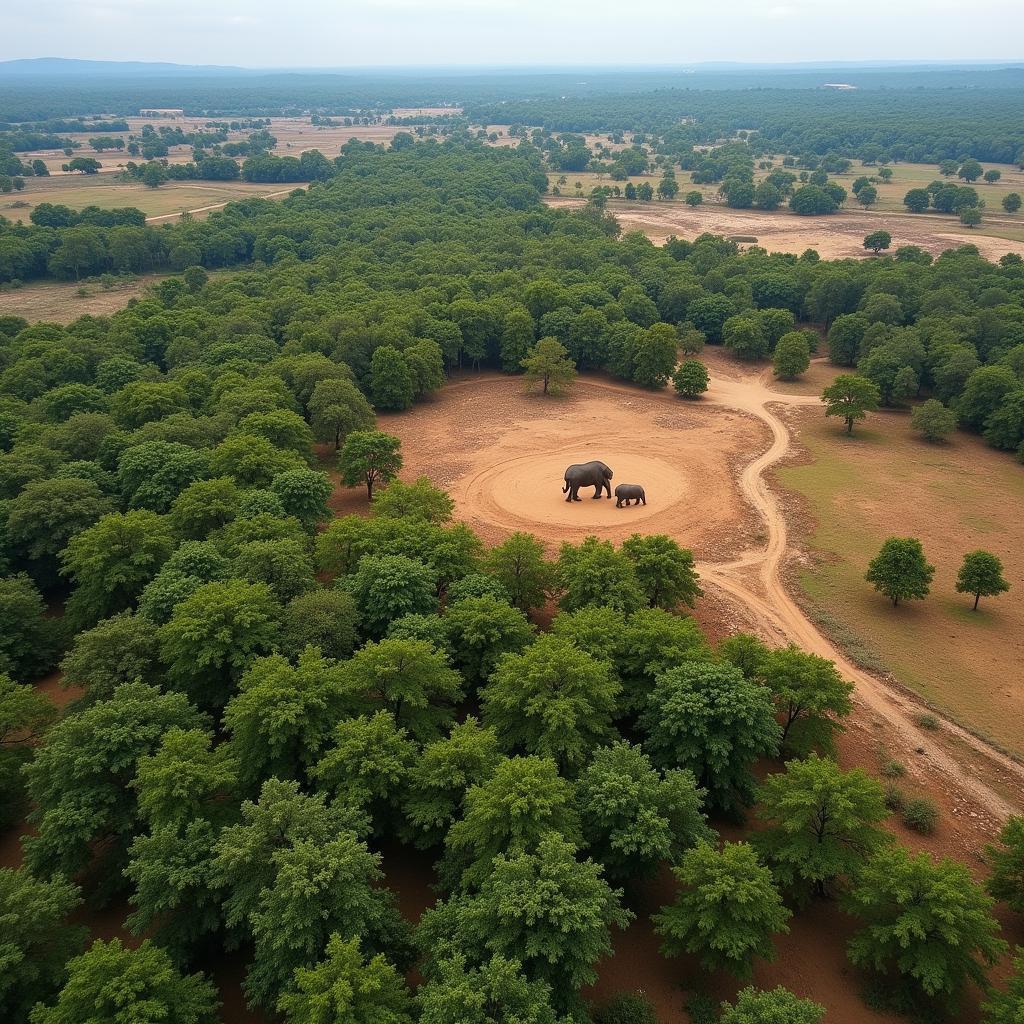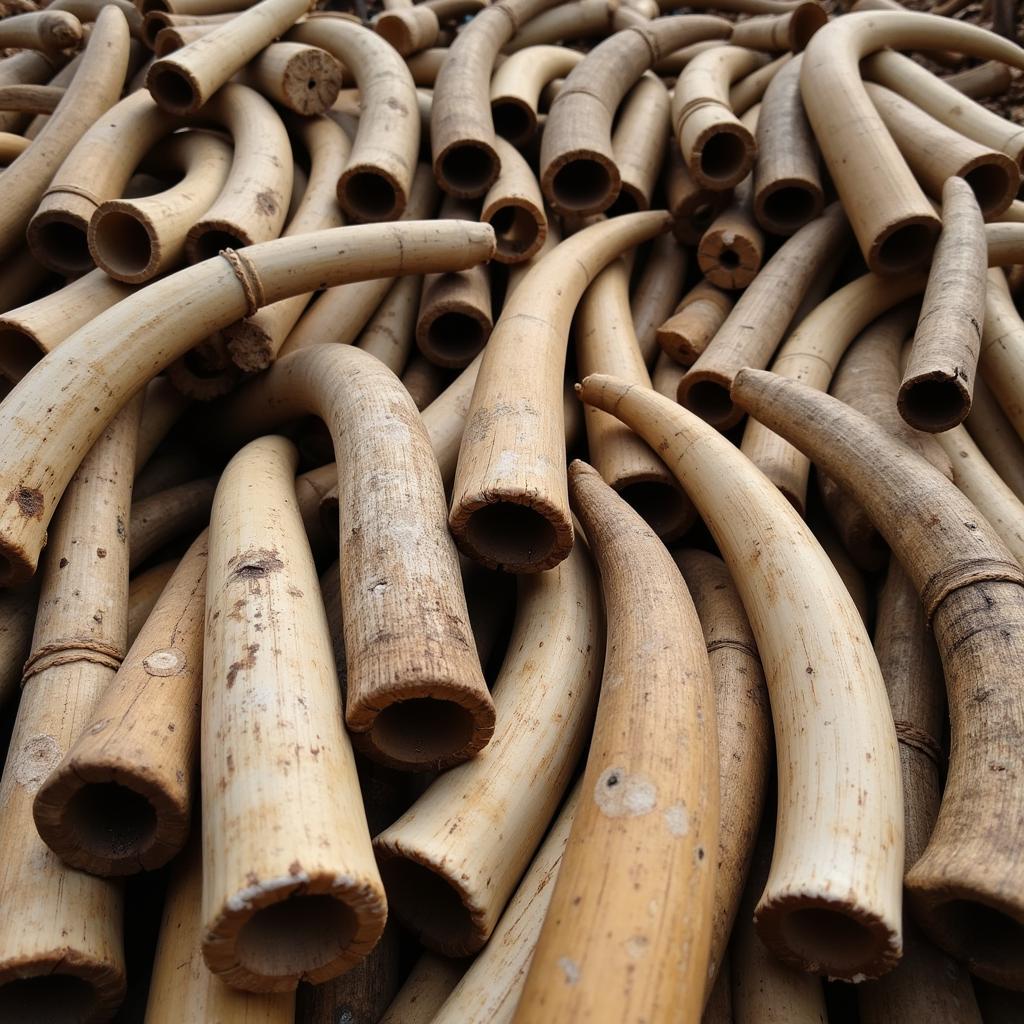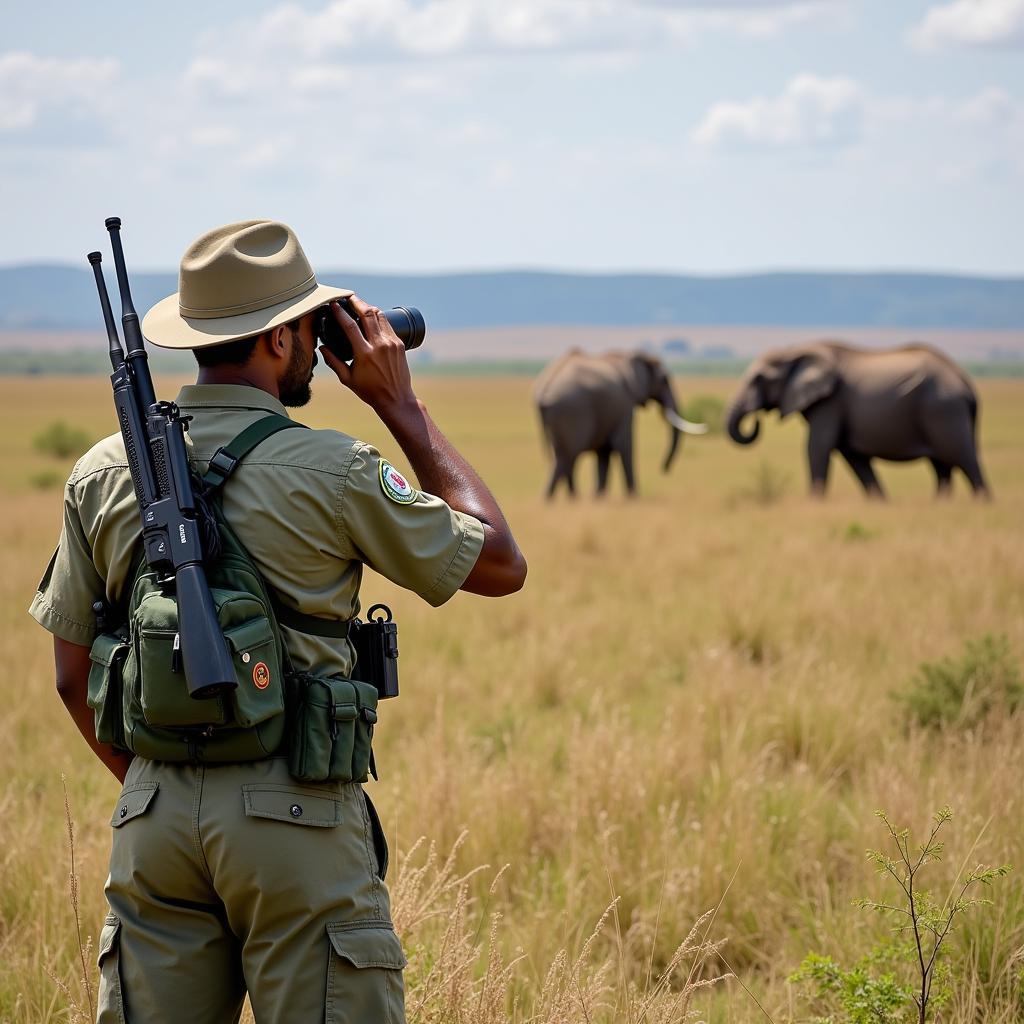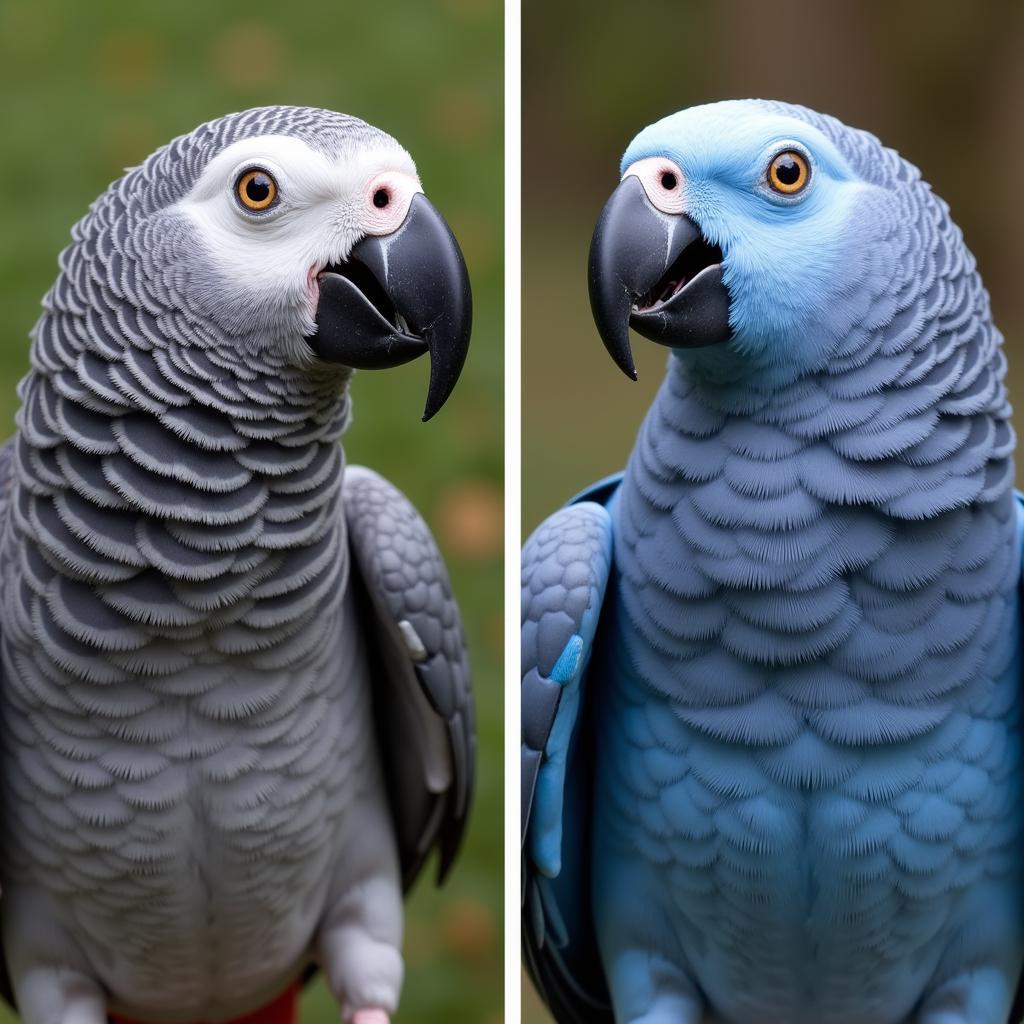The African Elephant: Why This Majestic Creature is Endangered
The African elephant, an iconic symbol of the continent’s biodiversity, is facing a dire situation. Classified as endangered, these magnificent creatures are threatened by a multitude of factors that demand global attention and immediate action.
The Plight of the African Elephant: A Closer Look
Across the vast savannas and forests of Africa, two distinct species of elephants roam: the African forest elephant and the larger African savanna elephant. Both are vital to the delicate balance of their ecosystems, yet both are grappling with the looming threat of extinction. Poaching for their ivory tusks remains a significant danger, fueled by illegal wildlife trade and driven by demand in international markets. However, habitat loss due to human encroachment, deforestation, and agriculture further exacerbates their struggle for survival.
Habitat Loss: A Growing Threat to Elephant Survival
 African Elephant Habitat Loss
African Elephant Habitat Loss
As human populations expand and development projects advance, the natural habitats of African elephants are increasingly fragmented and destroyed. This habitat loss not only limits their access to essential resources like food and water but also disrupts their social structures and migration patterns, ultimately hindering their ability to thrive.
The Ivory Trade: A Deadly Demand
 The Illegal Ivory Trade and Its Impact
The Illegal Ivory Trade and Its Impact
Despite international efforts to ban the ivory trade, the demand for this “white gold” continues to fuel poaching and illegal wildlife trafficking. The high prices offered for ivory, particularly in Asian markets, create a lucrative incentive for criminal networks, pushing elephants closer to the brink of extinction.
Conservation Efforts: A Glimmer of Hope
Despite the challenges, dedicated conservationists, organizations, and governments are tirelessly working to protect African elephants. Anti-poaching patrols, habitat restoration initiatives, and community-based conservation programs are being implemented across the continent to combat the threats and ensure the survival of these majestic creatures for generations to come.
Protecting Elephant Habitats: Securing a Future
Recognizing the critical link between habitat preservation and elephant survival, conservation efforts are increasingly focusing on protecting and expanding elephant ranges. Establishing protected areas, creating wildlife corridors, and promoting sustainable land management practices are vital steps in mitigating habitat loss and fragmentation.
Combating Poaching: Strengthening Enforcement and Reducing Demand
 Anti-Poaching Efforts in Action
Anti-Poaching Efforts in Action
To curb the illegal ivory trade, strengthening law enforcement, enhancing border controls, and implementing stricter penalties for poachers and traffickers are crucial. Equally important is addressing the demand side of the equation. Raising awareness among consumers, promoting alternative livelihoods, and engaging local communities in conservation efforts are essential in breaking the cycle of poaching and trafficking.
The Future of African Elephants: A Shared Responsibility
The fate of the African elephant rests in our collective hands. By supporting conservation organizations, advocating for stronger wildlife protection policies, and making conscious choices as consumers, we can contribute to the long-term survival of these magnificent creatures and ensure that they continue to grace the African landscape for generations to come.
Frequently Asked Questions
How many African elephants are left in the wild?
While exact numbers are difficult to determine, current estimates suggest that around 400,000 African elephants remain in the wild.
What are the main threats to African elephants?
The two most significant threats are habitat loss and poaching for their ivory tusks.
What is being done to protect African elephants?
Conservation efforts include anti-poaching patrols, habitat restoration, and community-based conservation programs.
How can I help protect African elephants?
You can support conservation organizations, advocate for stronger wildlife protection policies, and make informed choices as a consumer.
Looking for more information on African wildlife?
Check out these articles:
We must act now to protect the African elephant, a keystone species whose future is inextricably linked to the health of the entire African ecosystem. By addressing the threats of habitat loss and poaching, we can secure a future where these majestic creatures continue to roam free.
For any assistance or inquiries, please don’t hesitate to contact us:
Phone Number: +255768904061
Email: [email protected]
Address: Mbarali DC Mawindi, Kangaga, Tanzania.
Our dedicated customer support team is available 24/7 to assist you.



